- Creaig Dunton
- Albums and Singles
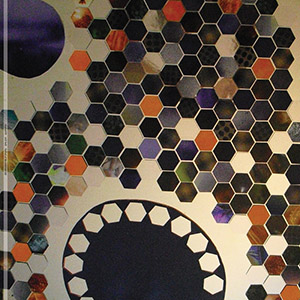 With only a handful of releases so far (as Rrill Bell and as The Preterite), the American born, German based composer Jim Campbell and his arsenal of various tape machines, is already doing amazing work. Layers of processed field recordings, various incidental tapes, and who knows what else come together in these two extremely dynamic and complex compositions that at times seem like completely alien, yet utterly fascinating worlds.
With only a handful of releases so far (as Rrill Bell and as The Preterite), the American born, German based composer Jim Campbell and his arsenal of various tape machines, is already doing amazing work. Layers of processed field recordings, various incidental tapes, and who knows what else come together in these two extremely dynamic and complex compositions that at times seem like completely alien, yet utterly fascinating worlds.
Campbell opens "Like Heavy Honey…//Wie Schwerer Honig…" with a mass of stacked erratic electronics; complete with bent (at times melodic) tones and abrupt tape stops and starts. He balances the denser, heavier segments with calm, peaceful passages of gentle field recordings punctuated with birds and other inviting bits. There are even some hints of melody, albeit subtle, that seem to be generated from live tape manipulations. Some of the sections have a ghostly feel via echoing empty spaces, and others resemble submerged, aquatic excursions. Closing with a bit of menace and bizarre wet echoes and subtle crackles, it never stays in one place too long.
On the other side, "…From the Hollow Comb//…Aus Den Hohlen Waben" begins with a significant amount of open space and heavy reverb. What obviously sounds like field recordings (though what they are actual recordings of remains a mystery) fill in that space, resulting in a bit more of a foreboding vibe. Campbell generates some synth-like pulses and shimmering, crystalline sounds, but the sense of menace never fully relents. Towards the end he does an excellent bit of juxtaposition balancing manipulated Morse Code like beeps with crackling analog textures.
Ballad of the External Life has such an amazing sense of depth and complexity that it is hard to fathom that this is his first full length vinyl release. This is all the more impressive knowing that this is almost exclusively manipulated cassettes and processing. Jim Campbell’s ability to generate such variations in tone and texture from tape manipulation is rather impressive, and that constant flow from one section to the next without ever really staying in one place too long manages to stay engaging without seeming in any way unfocused. It is an album I immediately loved, and listening to it more unveiled even more depth and variety.
Samples can be found here.
Read More
- Anthony D'Amico
- Albums and Singles
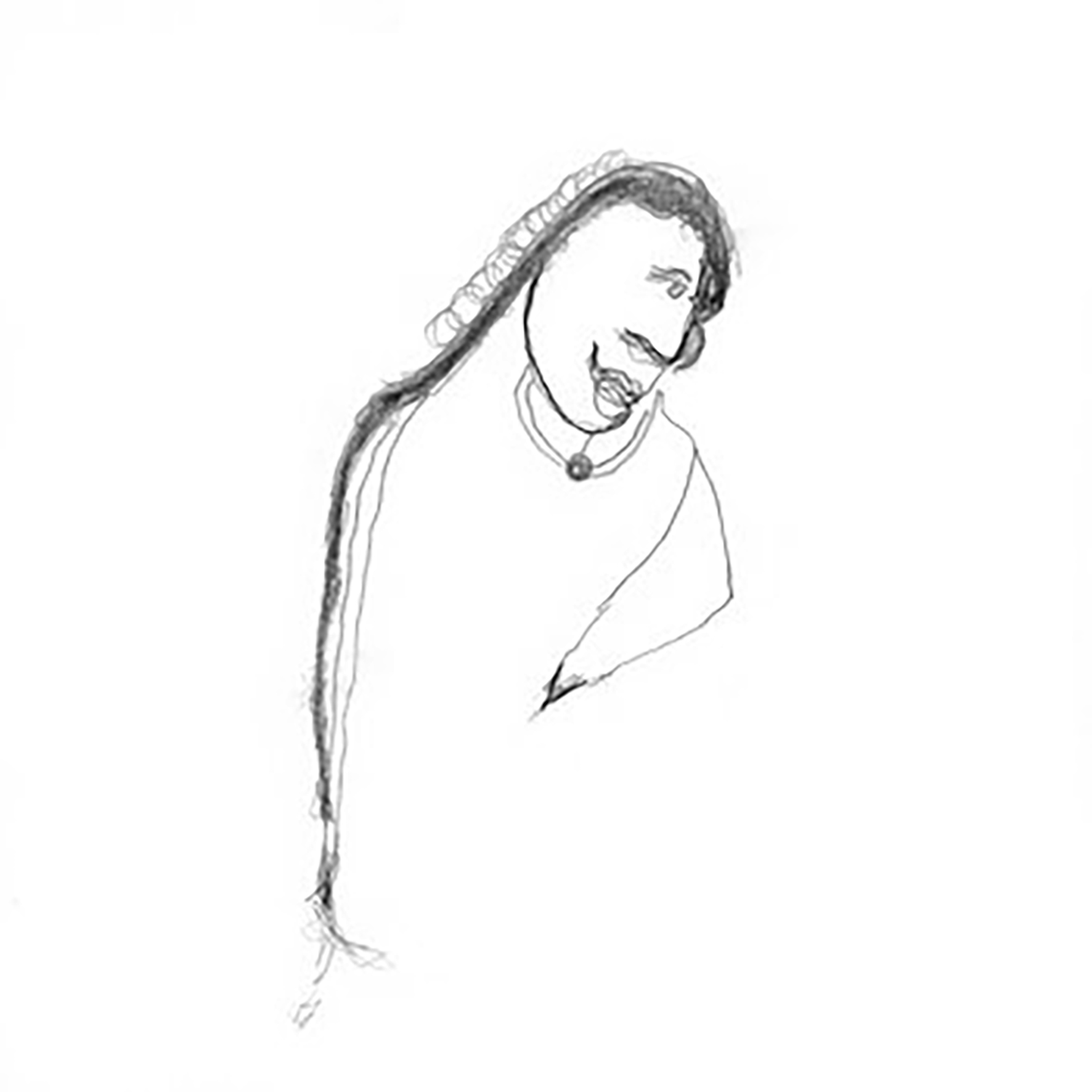
The latest album from this enigmatic Serbian composer is a significant departure from his previous work, as these five pieces were primarily composed on an old upright piano during lockdown. While the usual synthesizers are conspicuously relegated to a background role, In Immobile Air is nevertheless still very "Mogard" in both its central theme (memory) and its meditative and melancholy mood. It admittedly took me a bit longer to warm to this side of Mogard's artistry than usual (the piano is not my favorite instrument), but a few pieces capture him in especially inspired form and feel like significant breakthroughs in the manipulation of harmony and overtones. The other pieces are intriguingly adventurous as well, inhabiting a murky shadow realm somewhere between Harold Budd and blackened, desolate dronescapes.
Partially inspired by an unnamed Italo Calvino story, both the song titles and the general mood of In Immobile Air evoke the bleak grandeur of a rocky beach on an overcast day. For the most part, Mogard paints the album's various somber scenes with a balance of gently rippling minor key piano melodies and deep, brooding drones, but that balance can shift quite a lot between songs. The darkly beautiful title piece is probably the most equal balance of the two elements, as a sad, tumbling piano motif lazily repeats over a gnarled and heaving backdrop of synth swells. The following "Clouds," on the other hand, abandons any recognizable piano in favor of dense, blown-out, and downright seismic waves of drone. Nevertheless, it is an unexpectedly melodic piece, as the roiling miasma cyclically resolves into a repeating bass tone. As befits the title, "Clouds" calls to mind a sky full of dense black clouds that periodically breaks to reveal faint rays of warming light. It is quite a mesmerizing piece, but it is later eclipsed by the album's centerpiece "Sand." Like "In Immobile Air," it is centered upon a tender, minor key piano melody, but the brilliant bit slowly emerges from the background, as massive, buzzing oscillations swell from the murky swirl of lingering decay to steal the spotlight. The album's two more drone-based pieces are a bit less memorable, but In Immobile Air's highlights are impressive and unique enough to make it a strong album.
Samples can be found here.
Read More
- Anthony D'Amico
- Albums and Singles
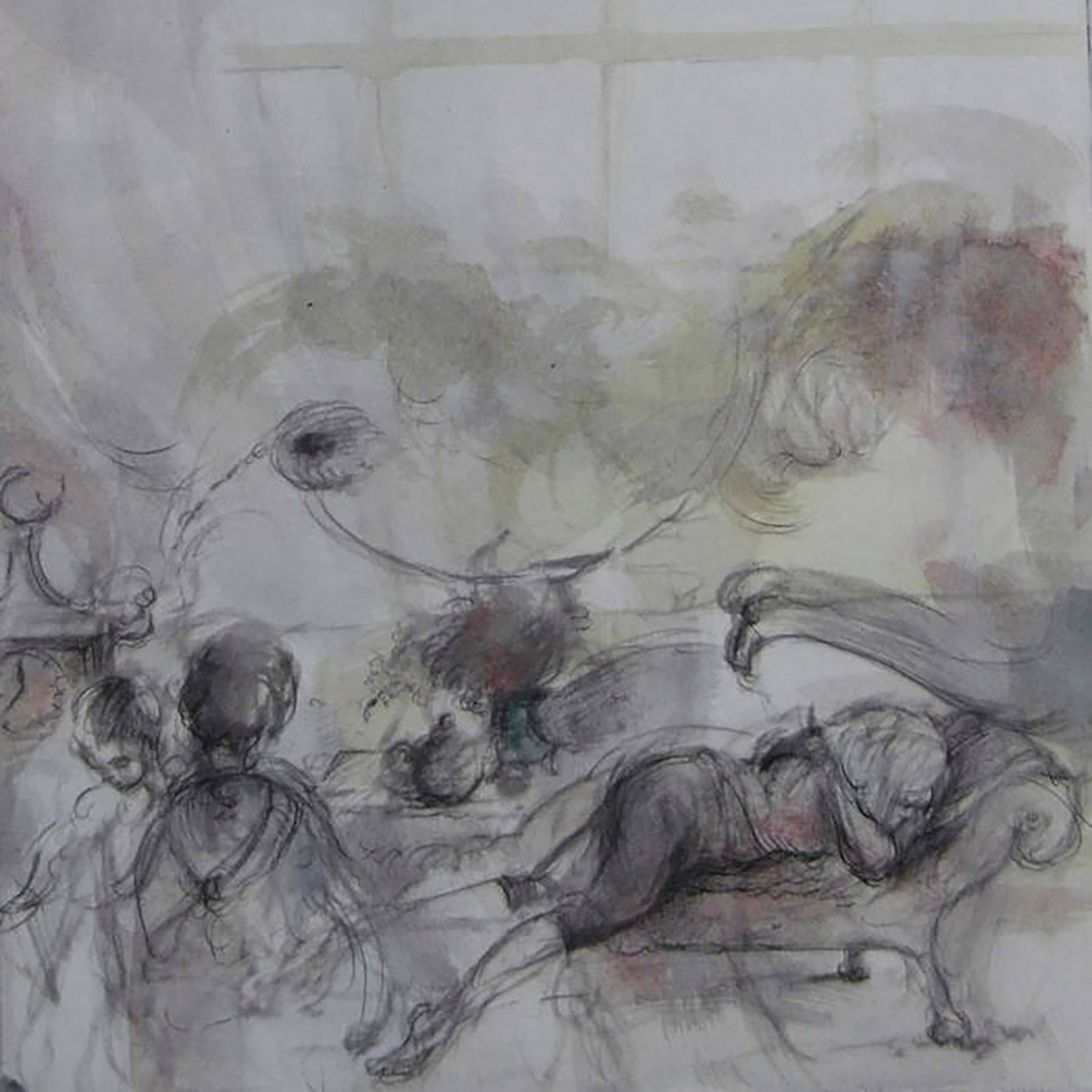
In characteristic fashion, Andrew Chalk quietly released this cassette last fall and it is damn near impossible to find out anything about it other than the fact that it compiles pieces recorded between 2008 and 2016 and features regular collaborators Timo von Luijk and Tom James Scott on one piece. All outward signs suggest that Incidental Music was intended as a modest and minor release, so it was quite a pleasant surprise to find that it is actually one of the stronger Chalk releases from the last few years, roughly approximating the slippery, shivering, and floating bliss of 2015's A Light at the Edge of the World in more bite-sized form. While there is enough variety to periodically remind me that this is indeed a collection of orphaned songs rather than a focused and complete new statement, the quality of these treasures from the vault is high enough to make such a distinction feel quite irrelevant.
The album immediately dissolves into sublime impressionist heaven with the opening "Fallen Angel," which captures Chalk at the height of his textural and harmonic powers. It is the sort of piece that people tend to describe with terms like "ambient drift," but it makes me think of water droplets quivering on a gently swaying spiderweb: there is an underlying structure, but the true beauty lies primarily on how the individual notes linger, shiver, and bleed together. It also highlights Chalk's singular talent for making extremely nuanced and sophisticated music feel organic and effortless, as "Fallen Angel" feels loose and spontaneous, yet delicately shifts moods while deftly avoiding any straightforward melodies or chords at all. While several of the following pieces return to roughly the same aesthetic with varying degrees of success (perfectly fine by me), the second half of the album is a bit more diverse and offers some more unexpected and rare pleasures. While I am still not entirely won over by the warm synth reverie of "Solas," I absolutely love "Sparkled in My Eyes," which sounds like a fever dream organ soundtrack to some masterpiece of German Expressionist cinema a la The Cabinet of Doctor Caligari. Elsewhere, "From Mountain Tops The Dusky Clouds" crafts a languorously undulating fog with gentle drones and subtle wah-wah effects, while "To Many A Harp" conjures a wonderfully haunted and tender scene with a slow-motion melody of wobbly sustained tones.  At least two or three of those pieces are stone-cold gems, but the entire album sustains a wonderfully immersive and absorbing spell.
Samples can be found here.
Read More
- Anthony D'Amico
- Albums and Singles
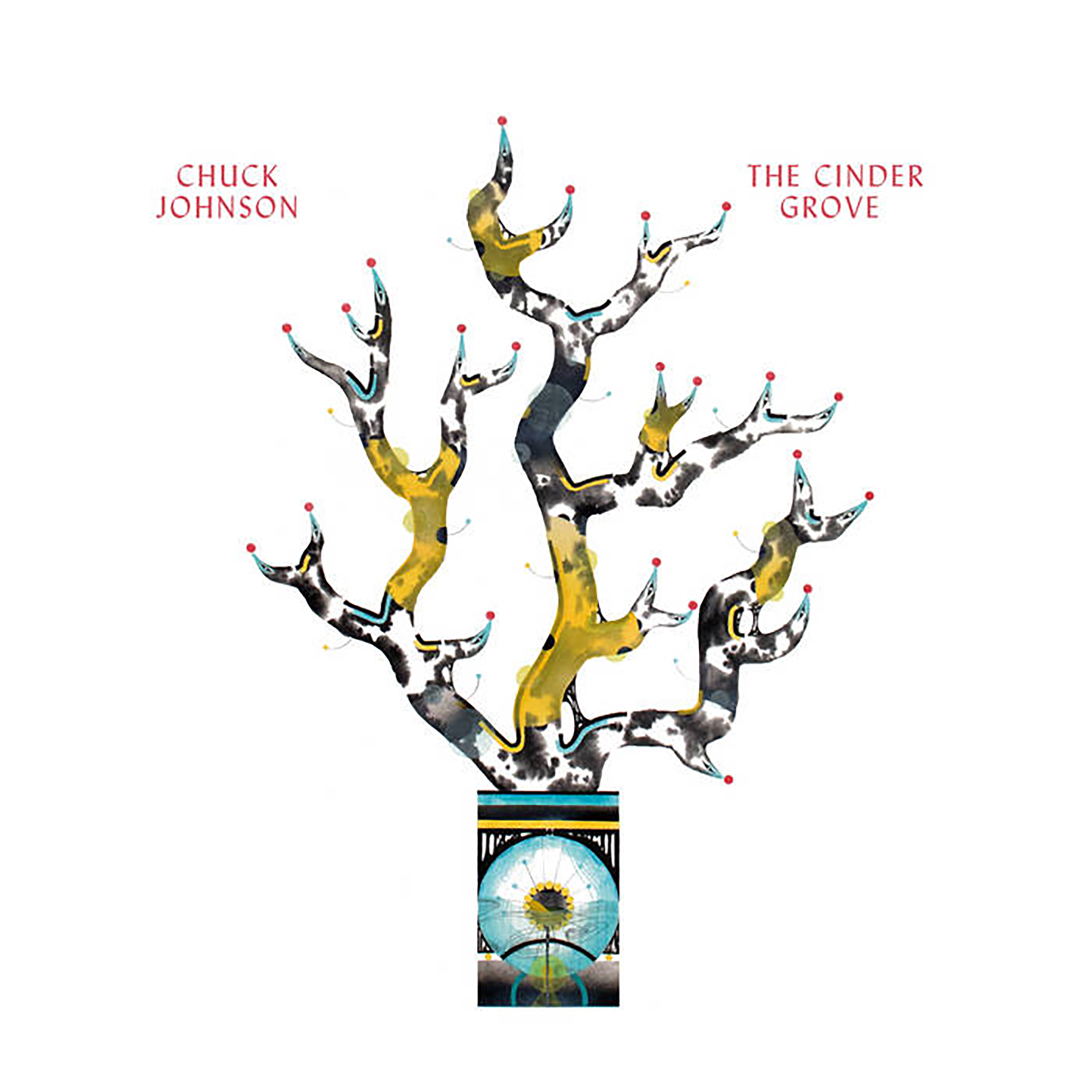
I can think of few other artists in the midst of a hot streak quite as wonderful as the one Chuck Johnson is currently enjoying, as nearly everything he has released since 2017’s Balsams has been downright revelatory. In keeping with that theme, his return to solo work is yet another sublime stunner and a strong contender for his finest album to date.  While Johnson wisely does not depart much from his winning Balsams aesthetic, he does subtly expand his palette with some help from Sarah Davachi, a small string ensemble, and an endearingly exacting approach to reverb.  For the most part, however, everything beyond his swooningly gorgeous pedal steel playing is merely icing on an already perfect cake: virtually no one crafts warm, achingly beautiful soundscapes better than Chuck Johnson and he seems to only get better at it with each new release.
The album opens with an absolute masterpiece in the form of "Raz-de-Marée," which poignantly combines a lovely descending organ theme with a lazily shimmering haze of pedal steel heaven. Everything about it is damn near perfect, from the melodies to the textures right down to the bittersweetly beautiful mood. It is frankly an impossible act to follow, which makes the more vaporous "Serotiny" pale a bit by comparison, though its floating dreamscape is still a very pleasant place to linger. The strongest pieces tend to be the ones that anchor the sliding, liquid bliss of the pedal steel with something more solid though, as the instrument can start to feel a bit weightless on its own. On "Constellation," that solidity is initially provided by a repeating pattern of warm bass tones, but the structure eventually gets fleshed out further by some reverberant piano chords courtesy of Davachi. The following "Red Branch Bell" is the album's most adventurous and unexpected delight, as Johnson fades into the background while a churning string theme steadily builds in visceral intensity, then reappears to finish the piece with a languorously psychedelic coda. The closing "The Laurel" feels similarly epic, marrying an elegiac string motif with some achingly beautiful pedal steel that evokes vivid steaks of color in a slow-motion sunset—a fittingly great end to a near-perfect album. Johnson hits the mark on nearly every possible detail with The Cinder Grove, but my favorite facet (aside from the songs themselves) is just how incredibly wonderful it all sounds, especially the way the sharper textures of the strings tear through the soft-focus swirl of dreamily sliding melodies. This album is going to be in heavy rotation here for a long time.
Samples can be found here.
Read More
- Administrator
- Albums and Singles
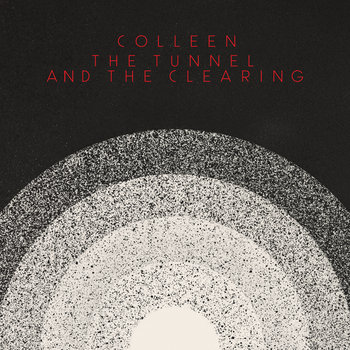
Colleen is an aboundingly inventive composer and artist. For two decades, Cécile Schott as Colleen has crafted welcoming, enchanting, and bewildering music. The multi-instrumentalist and vocalist’s timeless compositions make use of carefully selected tools to mold memories into transcendent splendor. The Tunnel and the Clearing finds Schott at her most vulnerable and confident, invoking contemplative and swirling organ processed through analog electronics, steady drum machine syncopations and her distinctive voice to embody breaking through the nexus of compounding transitions. On an album centered on processing the complicated washes of emotion through tribulations and revelations Colleen presents a vision of breathless clarity.
The Tunnel and the Clearing was developed over a period of transformative change. Colleen began work on the album in 2018 only to be met with extreme fatigue from a previously undiagnosed illness that all but halted her work. The following months and years of treatment and adjustment eventually led to relocating to a new home and studio in Barcelona, which was soon followed by lockdowns and ultimately the dissolution of her longtime partnership. The impact of deep reflecting on these cumulative experiences found Schott completely reimagining her compositional practices through her enduring gift for reinvention. Schott spent months in near complete silence apart from composing and ruminating on her newfound perspective through her music. Says Schott, "Never before had I felt so profoundly the power that music has, through harmony, melody, rhythm and sound itself, to express the whole range of human emotions." The resulting seven pieces investigate the complex, at times contradictory relationship between excitement and fear, anger and understanding, struggle and triumph, all focused on a reconstruction of the self.
Colleen's albums are unified by their employment of distinct and personal instrumentation to tell their story. From albums built around music boxes or viola da gamba to albums built around electronics, her music remarkably shares a dreamlike modern quality. From the early stages of working on The Tunnel and the Clearing, Schott restricted herself to using analog electronic instruments like the Elka Drummer One, the Roland RE-201 Space Echo and Moog Grandmother synth, coupled with Yamaha organ keyboard and select Moog effects. This limited instrument selection was inspired by years of listening to Jamaican and African recordings where musicians were pushed to maximize their creativity with minimal tools. A magnitude of atmospheres are summoned from deceptively simple combinations, from the meditative pulse of "The Crossing" to the frothy cascades of title track "The Tunnel and the Clearing." Pieces like "Revelation," or the brisk-paced "Implosion-Explosion" respectively showcase the most diverse use of harmony and the most incisive application of production technique in all of Colleen's catalog. Stunningly, Colleen achieves the rich emotional intricacy and the lush density of textures on The Tunnel and the Clearing through almost entirely live performance and processing.
The detailed and affecting compositions of The Tunnel and the Clearing mirror Colleen's grappling with her own psyche. Schott elaborates "I found direct correspondences between my internal discourse, its obsessive, frantic attempts at making sense of what I could not understand, and the music I was making, with motifs functioning as questions and answers, doubts and assertions." Clicks, hums, warbles and throbs emulating our evolving internal worlds, an "emotional noise." A musical journey through the tunnel toward the clearing at its end. An ending which is also a beginning. "The clearing is what is always out there: a vast expanse of space, light and possibilities," says Schott. The Tunnel and the Clearing is a work of lucid reverence, a constellation of marvels suspended in air.
More information can be found here.
Read More
- Administrator
- Albums and Singles
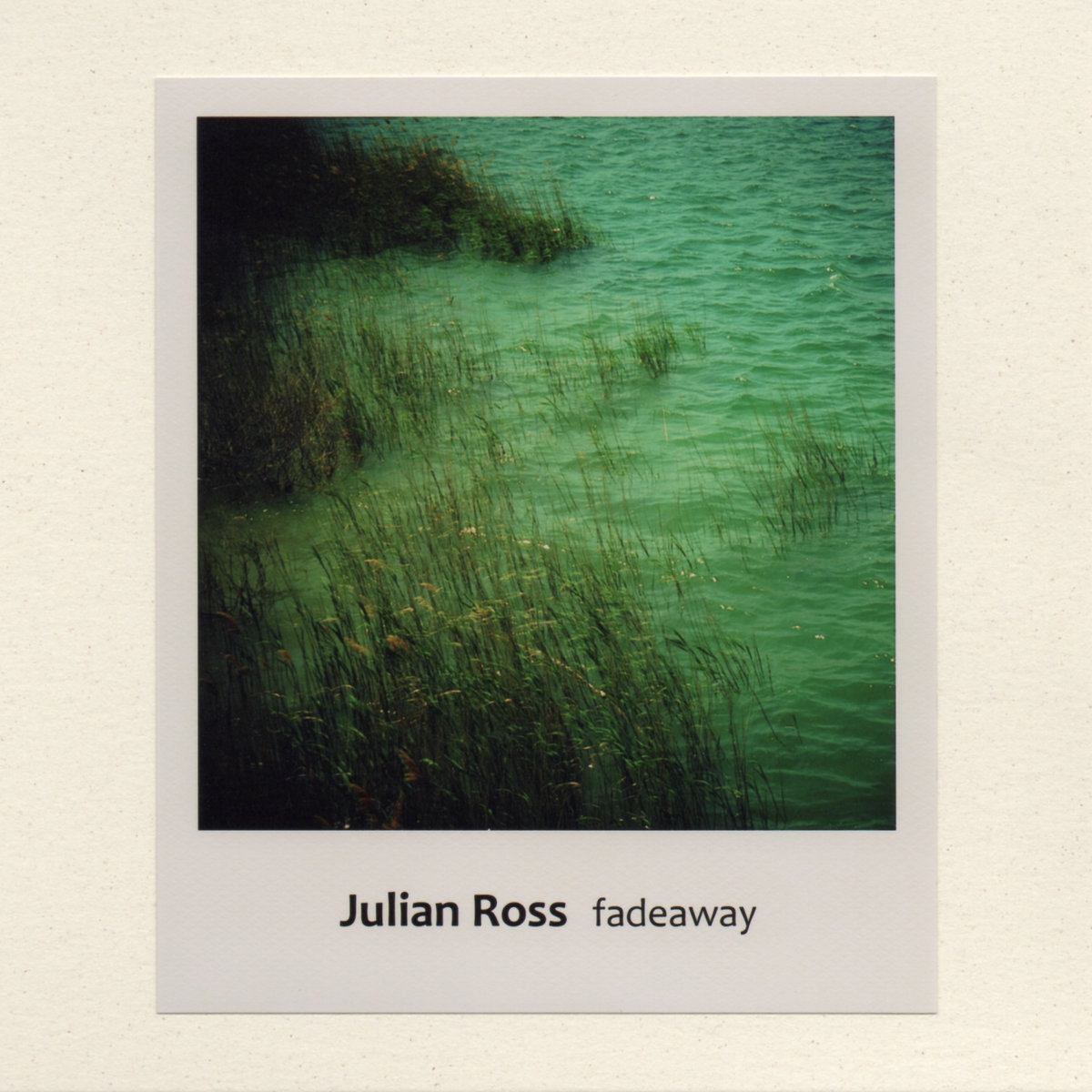
Sound In Silence is happy to announce the addition of Julian Ross to its roster of artists, presenting their new album Fadeaway.
Julian Ross is the ambient/post-rock duo of Ettore Di Roberto, co-founder and still member of Port-Royal, and Andrea Comotto, former bassist in a local blues band, based in Genoa, Italy. Formed in 2016, Julian Ross released their debut album Retrospective on Silent Flow netlabel in 2018, representing the meeting of two different visions of music naturally blending one into each other.
Fadeaway, Julian Ross’ second full-length album, consists of five long-form tracks with a total duration of 35 minutes. Blending layers of mesmerizing synth pads, hypnotic bass lines, loops of delicate acoustic guitar arpeggios, subtle beats, electronic glitches, lo-fi samples, field recordings and indistinct voices from various speeches, Julian Ross create a wonderful album that perfectly mixes warm ambient, gentle electronica and minimal post-rock.
Mastered by Emilio Pozzolini, also member of Port-Royal, Fadeaway is an impressive album, highly recommended for devotees of Labradford, Tim Hecker, Fennesz and of course the quieter moments of Port-Royal.
More information can be found here.
Read More
- Administrator
- Albums and Singles

Sound In Silence is proud to welcome Hotel Neon to its family, presenting their new album Moments.
Hotel Neon is an ambient trio, geographically spread between Philadelphia, Baltimore and Virginia Beach, USA. Formed in 2013 as a duo by twin brothers Andrew and Michael Tasselmyer, Hotel Neon expanded into a trio when Steven Kemner joined them in 2015. To date they have released five albums on labels such as Home Normal, Fluid Audio and Archives, a 10” vinyl split with Endless Melancholy on Thesis, and a single on Past Inside The Present. They have also self-released a remix album, two tour cassettes and four singles, two of which collaborating with Slow Meadow and one with Blurstem. Hotel Neon have toured with the likes of Benoît Pioulard, Lowercase Noises, Slow Meadow, Loscil, The Sight Below, Marcus Fischer and Christopher Tignor, filling a variety of performance spaces from galleries to cathedrals with their densely layered walls of sound, while all three members have also been active either as solo artists or in groups and projects such as The Sound Of Rescue, Gray Acres, Solidarity Hymn, Mordançage and Transient Sounds.
Moments, Hotel Neon’s sixth full-length album and first for Sound In Silence, consists of seven evocative tracks with a total duration of something more than 36 minutes. Recorded in the span of just eight weeks and done remotely, Moments is definitely one of the more minimal and textural albums Hotel Neon have ever made. Proving that they avoid repeating themselves with every album, on Moments there is certainly a stronger presence of more orchestral sounds than on their previous albums. Widening their sound palette with more swelling strings, moving orchestral elements, and subtle piano melodies, along with their usual textured layers of hazy guitars, glassy drones, soothing pads and field recordings, Hotel Neon offer one of their best albums to date.
Mastered by Taylor Deupree, Moments is a truly touching masterpiece which appeals to all fans of artists such as Stars Of The Lid, Hammock and A Winged Victory For The Sullen.
More information can be found here.
Read More
- Creaig Dunton
- Albums and Singles
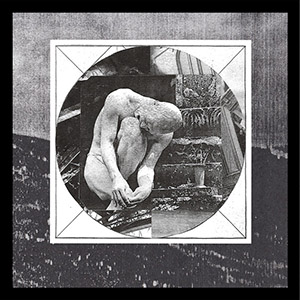 This latest CD from the duo of Luke Tandy and Shane Church has all the hallmarks of an old school harsh noise record. With an instrument list consisting only of tapes and pedals, and right up front the obvious use of clattering junk and buzzing instrument cables, I thought it was going to be a mid 90s throwback blowout of distortion. Encased in Marble/Wrapped in Roots is, however, more of an understated work. That rough-hewn production and use of overdriven sound is certainly there, but Tandy and Church deliberate in their use of dynamics and space, giving a perfect sense of tension throughout.
This latest CD from the duo of Luke Tandy and Shane Church has all the hallmarks of an old school harsh noise record. With an instrument list consisting only of tapes and pedals, and right up front the obvious use of clattering junk and buzzing instrument cables, I thought it was going to be a mid 90s throwback blowout of distortion. Encased in Marble/Wrapped in Roots is, however, more of an understated work. That rough-hewn production and use of overdriven sound is certainly there, but Tandy and Church deliberate in their use of dynamics and space, giving a perfect sense of tension throughout.
On "Mind as Stone and Water," the duo use an almost musical phrase looped throughout, covered with layers of lo-fi analog crunch. "Message Infinite" may not have as much in the way of pseudo-melody, but does approximate rhythm via stabbing bursts of static. With a hollow metal hum giving a slightly dark ambient feel to the piece, it is understated and a bit too brief overall. There is also a rhythmic clicking throughout the closing "Clenching Sand," presented alongside windstorm noises and low end rumble. The piece is structurally tight overall, with some looseness towards its conclusion in the form of bent tape passages.
Harness never fully abandon their harsher roots, however. "Replaced Broken Relic" is constructed on a bed of pummeling, overdriven layers with clattering spring reverb tank abuse and wobbling, unstable sounds on top. There is a bit of rhythm via loops, but overall it is a lot of crunching texture punctuated with just the right amount of breathing room. With an opening that sounds almost like a distant chainsaw, "Traveling Along the Knife's Edge" ends up resembling an entire orchestra of power tools. Easily the harshest work here, it eventually relents to a space of heavy sub bass and reverberated clattering, resulting in a conclusion that less harsh, but certainly more unsettling.
One of the most fascinating aspects of Encased in Marble is how Tandy and Church use deliberately lo-fi sounds and production, but in such a way that it adds a massive sense of textural depth and complexity to the sound. The distortion and maximized, but clipped volumes give a brilliant added variety to the sound that, even at its harshest moments, seems carefully nuanced. That depth, and an overall structural dynamic of tension and release, results in an amazingly gripping album that hits all of the notes a good noise album should.
Samples can be found here.
Read More
- Anthony D'Amico
- Albums and Singles
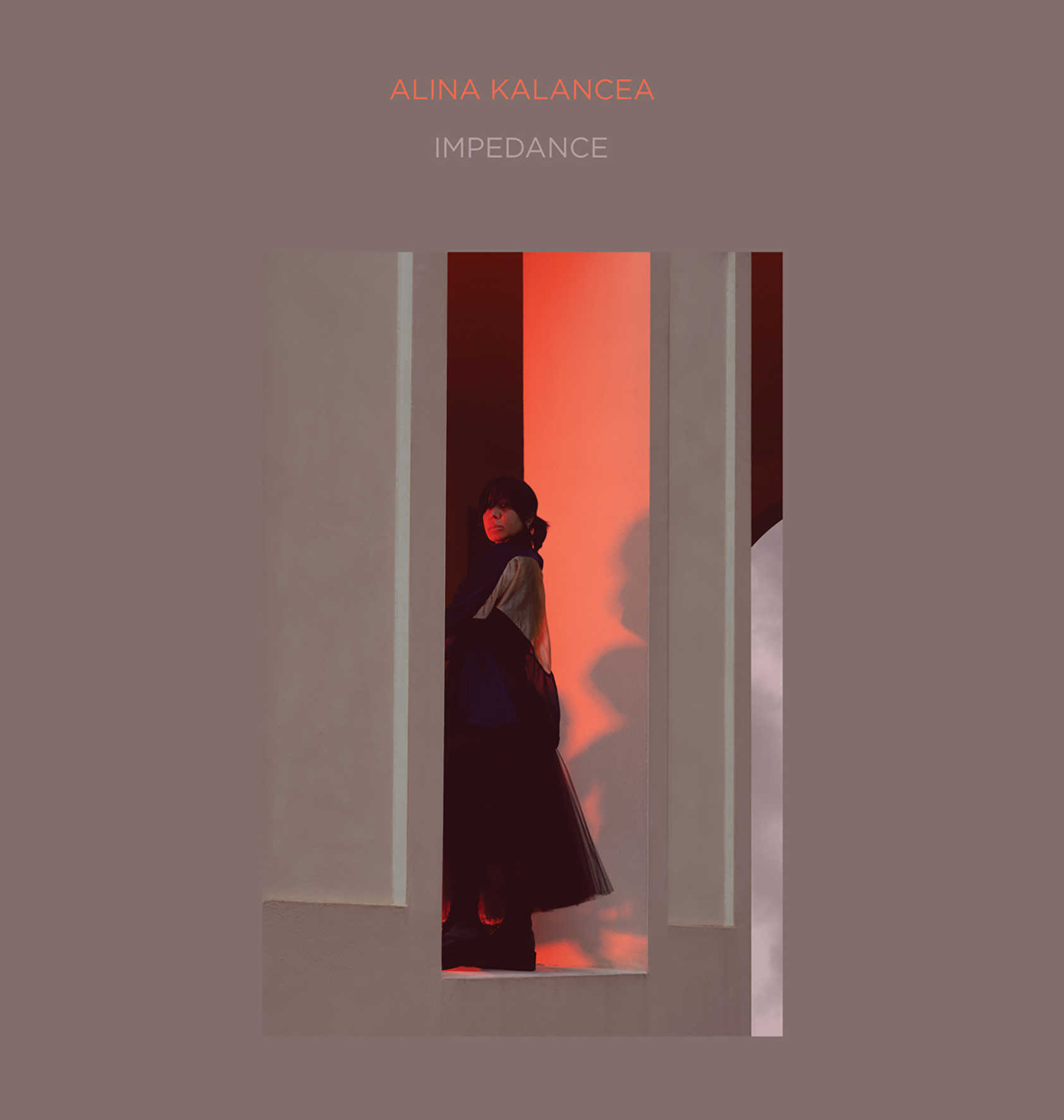
This Romanian composer’s second album is quite a wonderful surprise, easily ranking among Important's finest non-reissue releases in recent memory. Far less surprising is the fact that Impedance is Buchla-driven (given the label’s well-documented fondness for modular synthesizers), but this is happily one of those times in which the tools are secondary to the focused and compelling vision that they help bring to life. While the album's best moments tend to be those that resemble a throbbing and seething strain of minimalist, industrial-inspired "noise" akin to recent Puce Mary work, Impedance as a whole is an ambitiously shapeshifting, deep, and legitimately heavy listening experience that grows more expansive and varied as it unfolds.
The opening "Introspection" very effectively foreshadows what is to come, as it slowly builds from beeps and a bass throb into a seismic slab of deconstructed techno that burrows through a barely-there haze of twinkling, smearing, and looping psychedelia. The more haunted-sounding elements evoke the feeling of descending into a nightmare, but it is at least a propulsive and darkly libidinal one (those bass pulses just do not stop). The piece then arguably segues into a more concise, focused, and hallucinatory version of itself with "Walking Through Storm" (mechanized dread with a side helping of "weirdly viscous-sounding"). Delineations between pieces quickly cease to matter though, as the album feels like an extended DJ mix of heavy bass, subterranean woodpeckers, futuristic Kubrickian menace, and plenty of subtle mindfuckery (smearing tones, field recordings, etc.). And it seems to only get better as it goes on, culminating in the stellar one-two punch of "Horizons (After a Silent Walk)" and "Concrete Floor." In fact, "Horizons" damn near steals the show when its seesawing bass thrum blossoms into a darkly surreal finale of echoing voices, densely buzzing oscillations, sinister animal howls, and slow, insistent beeps. While a few pieces feel a bit long (I wish this was not a double vinyl release), Kalancea clearly had more than one LP worth of killer material and it would have been a shame to pare it down to only that (especially since it all flows together so well in its current format). In any case, this album is an absolute monster, as Kalancea repeatedly strikes the perfect balance between raw physicality, simmering violence, and exacting execution (like an Eliane Radigue album that is about to smash a bottle over my head).
Samples can be found here.
Read More
- Eve McGivern
- Albums and Singles
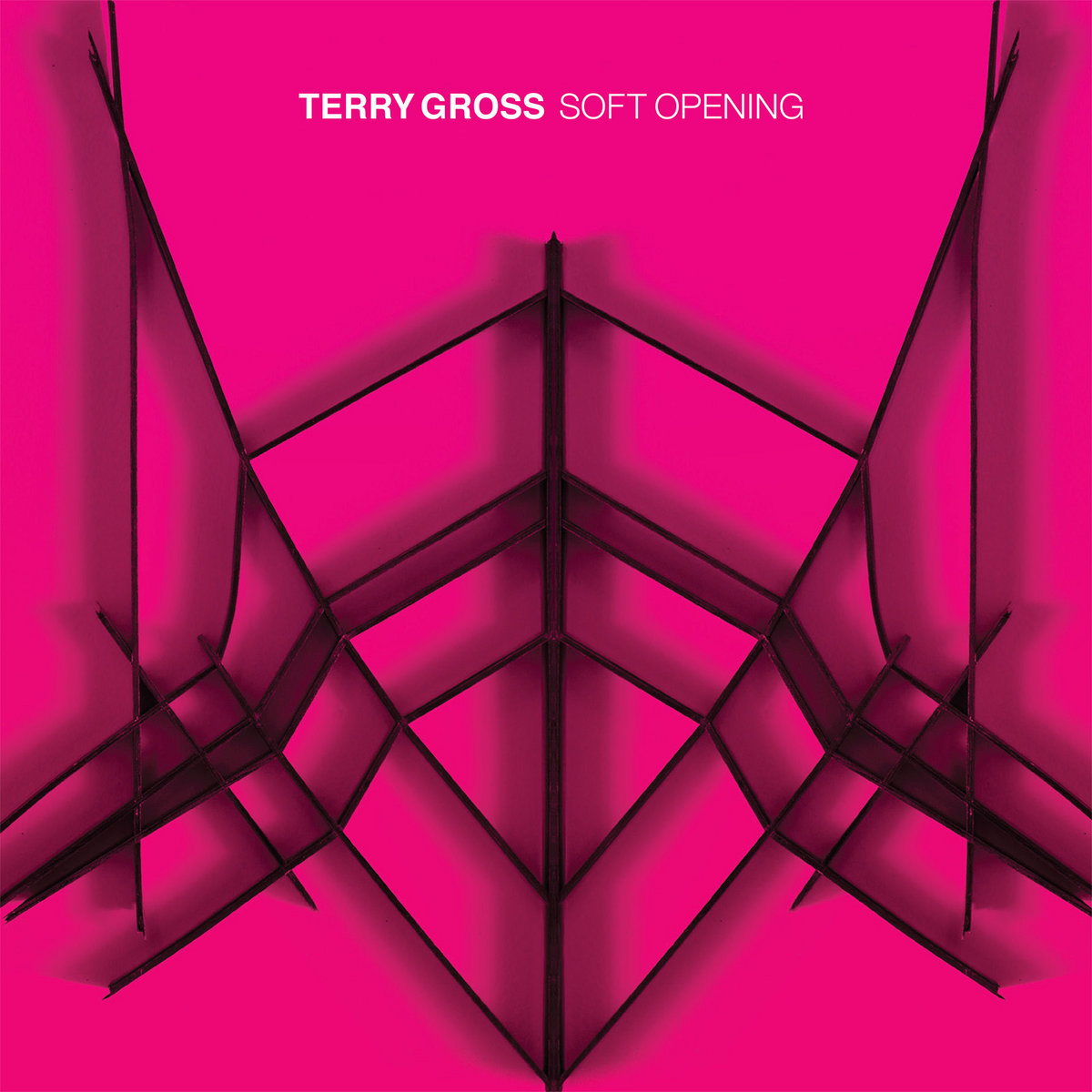 The name Terry Gross brings to mind the NPR host. This Terry Gross is comprised of music industry veterans guitarist Phil Manley (Trans Am, the Fucking Champs, Life Coach), bassist Donny Newenhouse (Film School, Hot Fog, Buffalo Tooth), and drummer Phil Becker (Pins of Light, ex-Triclops! and Lower Forty-Eight). Where the radio host provides content with an impossibly calm demeanor, the musical trio present three heavy and kinetic tracks that serve up pulsating motorik rhythms, heavy sludge, driving bass, and intense guitars served up at mesmerizing cosmic volumes — all the while, pulling us listeners in with a constant array of melodic hooks.
The name Terry Gross brings to mind the NPR host. This Terry Gross is comprised of music industry veterans guitarist Phil Manley (Trans Am, the Fucking Champs, Life Coach), bassist Donny Newenhouse (Film School, Hot Fog, Buffalo Tooth), and drummer Phil Becker (Pins of Light, ex-Triclops! and Lower Forty-Eight). Where the radio host provides content with an impossibly calm demeanor, the musical trio present three heavy and kinetic tracks that serve up pulsating motorik rhythms, heavy sludge, driving bass, and intense guitars served up at mesmerizing cosmic volumes — all the while, pulling us listeners in with a constant array of melodic hooks.
Soft Opening it is most definitely not, as the appropriately named “Space Voyage Mission” comes blasting out of the gate with pulsating, interstellar fuzzadelic intensity, diving into an onslaught of guitars before floating away into motorik beauty of shimmering guitars. Nearly 20 minutes of booming rhythms and guitar-driven melodic madness does not feel too long for this massive slab of heavy beauty. Manley’s work with Trans Am can be sensed, bringing a particular lightness and groove to the kraut-driven tracks, yet perfectly capable of metallic sludge. “Worm Gear” kicks off with persistent kraut beats and cascading, guitar distortion that finds all three musicians merging into a slathering of Sabbath-worthy heaviness.
Much of the album is instrumental, letting the instruments work their magic, but it is not devoid of vocals. “Specificity (Or What Have You” finds the trio providing a united chorus over an incredibly catchy rhythm and a memorable bass line that ends on an explosion of fuzzed-out rock and roll. This is a perfect candidate for radio play, but as amazing as that track is, it doesn’t begin to serve as the pinnacle of the album, the other tracks masterworks of their own.
Tight play between guitar, bass, and drums reveals obvious chemistry between the three, honed over time with practice and experimentation. Just how much practice was required to achieve this near-seamless integration between genres remains unknown; there’s always a risk of such projects becoming one-offs. I’ll go on a limb and suggest there’s more to look forward to from this talented trio, each a component of the whole.
Read More
- Eve McGivern
- Sound Bytes
 The name Terry Gross brings to mind the NPR host. This Terry Gross is comprised of music industry veterans guitarist Phil Manley (Trans Am, the Fucking Champs, Life Coach), bassist Donny Newenhouse (Film School, Hot Fog, Buffalo Tooth), and drummer Phil Becker (Pins of Light, ex-Triclops! and Lower Forty-Eight). Where the radio host provides content with an impossibly calm demeanor, the musical trio present three heavy and kinetic tracks that serve up pulsating motorik rhythms, heavy sludge, driving bass, and intense guitars served up at mesmerizing cosmic volumes — all the while, pulling us listeners in with a constant array of melodic hooks.
The name Terry Gross brings to mind the NPR host. This Terry Gross is comprised of music industry veterans guitarist Phil Manley (Trans Am, the Fucking Champs, Life Coach), bassist Donny Newenhouse (Film School, Hot Fog, Buffalo Tooth), and drummer Phil Becker (Pins of Light, ex-Triclops! and Lower Forty-Eight). Where the radio host provides content with an impossibly calm demeanor, the musical trio present three heavy and kinetic tracks that serve up pulsating motorik rhythms, heavy sludge, driving bass, and intense guitars served up at mesmerizing cosmic volumes — all the while, pulling us listeners in with a constant array of melodic hooks.
Soft Opening it is most definitely not, as the appropriately named "Space Voyage Mission" comes blasting out of the gate with pulsating, interstellar fuzzadelic intensity, diving into an onslaught of guitars before floating away into motorik beauty of shimmering guitars. Nearly 20 minutes of booming rhythms and guitar-driven melodic madness does not feel too long for this massive slab of heavy beauty. Manley's work with Trans Am can be sensed, bringing a particular lightness and groove to the kraut-driven tracks, yet perfectly capable of metallic sludge. "Worm Gear" kicks off with persistent kraut beats and cascading, guitar distortion that finds all three musicians merging into a slathering of Sabbath-worthy heaviness.
Much of the album is instrumental, letting the instruments work their magic, but it is not devoid of vocals. "Specificity (Or What Have You" finds the trio providing a united chorus over an incredibly catchy rhythm and a memorable bass line that ends on an explosion of fuzzed-out rock and roll. This is a perfect candidate for radio play, but as amazing as that track is, it doesn't begin to serve as the pinnacle of the album, the other tracks masterworks of their own.
Tight play between guitar, bass, and drums reveals obvious chemistry between the three, honed over time with practice and experimentation. Just how much practice was required to achieve this near-seamless integration between genres remains unknown; there's always a risk of such projects becoming one-offs. I'll go on a limb and suggest there's more to look forward to from this talented trio, each a component of the whole.